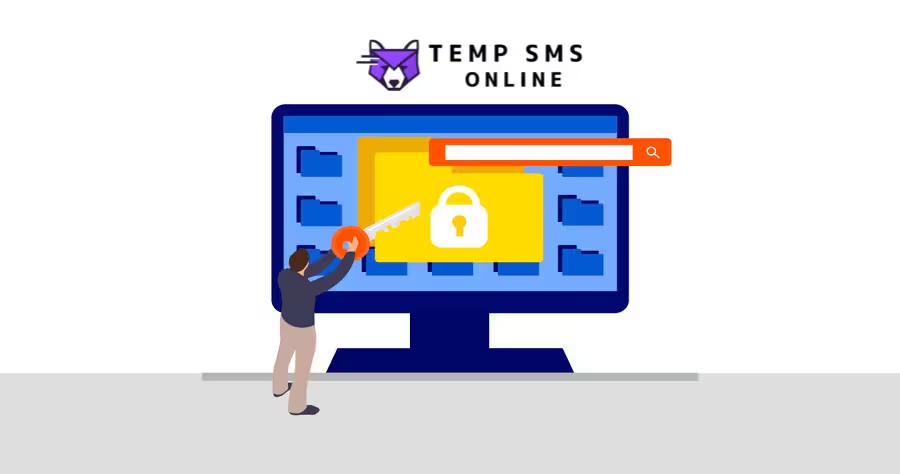In today's digital landscape, safeguarding your personal data has never been more crucial. With the rise of online identity theft and privacy risks associated with phone numbers, individuals need to be aware of the potential dangers lurking behind seemingly innocent requests for contact information. From SIM swapping attacks to targeted phishing scams, understanding what can happen when you share your phone number is essential. This blog post will explore effective strategies to protect your personal data, including utilizing tools like TempSMSOnline and implementing best practices for maintaining your phone number privacy.
Understanding the Risks Associated with Phone Numbers
In today's digital age, sharing your phone number can expose you to various risks. Here are some key dangers of sharing phone numbers:
- Online Identity Theft: Once someone has your phone number, they could easily impersonate you and access sensitive accounts.
- SIM Swapping Attacks: Attackers can take control of your phone number, allowing them to reset passwords and gain access to financial information.
- Doxxing: If your phone number is public, malicious individuals may reveal your personal details online, compromising your safety.
To mitigate phone number privacy risks, be cautious about where and with whom you share your number. Understanding what can someone do with your phone number is crucial in protecting your personal data. Stay vigilant and take proactive steps to safeguard your information.
Use TempSMSOnline and Protect Your Data
Using TempSMSOnline is an excellent strategy to protect your data and mitigate the dangers of sharing your phone number. Here's how it can help:
- Temporary Numbers: TempSMSOnline offers disposable phone numbers, allowing you to interact without revealing your actual number.
- Prevention of Risks: By using a temporary number, you significantly reduce your phone number privacy risk. This helps guard against online identity theft and potential SIM swapping attacks.
- Easier to Manage: Track your messages without a long-term commitment, giving you greater control over who can reach you.
Incorporating services like TempSMSOnline is a proactive step in ensuring your privacy and preventing doxxing while engaging online.
Best Practices for Keeping Your Phone Number Private
To safeguard your phone number and minimize the phone number privacy risk, consider these essential practices:
- Limit Sharing: Only provide your phone number when absolutely necessary. Avoid sharing it on public platforms.
- Use Temporary Numbers: Services like TempSMSOnline can help you create temporary numbers for one-time verifications, reducing the dangers of sharing your phone number.
- Be Wary of Apps: Review app permissions; some do not require access to your phone number. Always choose privacy-first apps.
- Educate Yourself on SIM Swapping Attacks: Understand how attackers can exploit your number, which can lead to online identity theft.
- Watch for Phishing Attempts: Be cautious of messages requesting personal details, and never click on suspicious links.
By implementing these strategies, you can effectively protect personal data and reduce the risk of doxxing.
Recognizing Phishing Attempts and Scams
Phishing attempts are a growing threat that exploits phone number privacy risks. Recognizing these scams can help protect personal data effectively. Here are key indicators to identify phishing:
- Unsolicited messages: Be cautious of texts from unknown numbers asking for sensitive information.
- Urgency: Scammers often create a false sense of urgency, claiming your account or data is at risk.
- Links and attachments: Avoid clicking on links or downloading attachments from unfamiliar sources. They may lead to sites designed for online identity theft.
- Generic greetings: Phishing messages often lack personalization, using generic terms like "Dear User."
Stay vigilant, as scammers can also engage in SIM swapping attacks using your phone number. By understanding these tactics, you can significantly reduce the dangers of sharing your phone number.
Tools and Apps to Help Protect Your Personal Data
In today’s digital age, safeguarding your personal data is crucial, especially concerning your phone number. Here are some essential tools and apps designed to enhance your phone number privacy:
- TempSMSOnline: This service provides disposable phone numbers, helping you to protect personal data by keeping your real number hidden when signing up for services.
- Two-Factor Authentication (2FA) Apps: Use apps like Authy or Google Authenticator to enhance security, minimizing the risk of online identity theft and potential SIM swapping attacks.
- Privacy Protectors: Tools such as Privacy.com generate virtual cards to protect your financial data linked to your phone number.
By utilizing these resources, you can significantly mitigate the dangers of sharing your phone number and how to prevent doxxing effectively.
Frequently Asked Questions
What are the dangers of sharing my phone number online?
Sharing your phone number online can expose you to various risks, such as unwanted spam calls and messages, identity theft, and even potential SIM swapping attacks. When scammers obtain your number, they can impersonate you to access your accounts, bypass security measures, and steal personal information. Therefore, it is crucial to be cautious about where and with whom you share your phone number.
How can I protect my phone number from being misused?
To safeguard your phone number from misuse, consider using alternatives whenever possible, such as virtual phone numbers for registrations or sign-ups. Additionally, restrict sharing your number, especially on social media platforms, and utilize privacy settings to hide it from public view. It's highly advisable to enable two-factor authentication on accounts that require your phone number and to monitor your accounts regularly for any suspicious activity.
What measures can I take to prevent doxxing related to my phone number?
Preventing doxxing involves taking proactive steps to guard your personal information. Start by minimizing the information you share publicly, especially your phone number. Use privacy settings on social platforms to control who can view your details. If you believe someone may attempt doxxing, consider using a secondary phone number for online activities and familiarize yourself with reporting procedures on platforms to handle potential incidents quickly.
